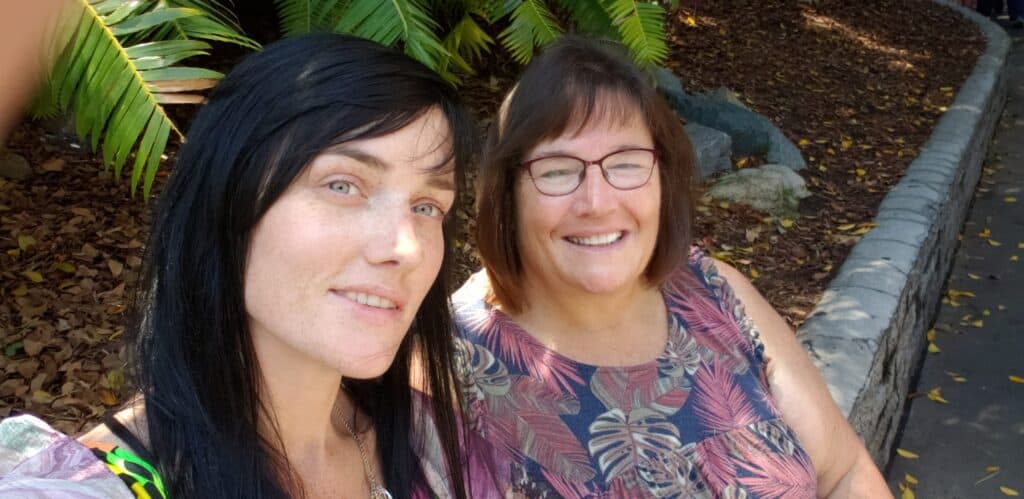Pass the Metastatic Breast Cancer Access To Care Act Today
Janet Ramsey was a swimmer her whole life. She swam competitively, she taught swim lessons, she could outswim her sister, nephew and granddaughter. One summer day in June 2020, Janet could barely make it across the pool. She had no power in her arms and could barely breathe.
“I thought, ‘Oh my gosh, what’s wrong with me? I can’t swim. I can barely breathe,’” Janet recalls.
Janet had been in chronic pain for almost four months. As a retired health care worker and volunteer on the local ambulance, Janet knew something was wrong. On July 23, 2020, Janet was diagnosed with stage 4 breast cancer, also known as metastatic breast cancer (MBC). She was 60 years old.
At the time of her diagnosis, Janet’s breast cancer had spread throughout the bones in her body – she had a broken rib, and a nearly disintegrated T5 and C4 in her vertebrae.

Janet was retired but had health insurance through her former employer. She had been through early-stage breast cancer nine years before, at the age of 51. Her insurance covered her treatments then and the cost to her was minimal. She had no idea what her MBC treatments would consist of or how much they were going to cost.
At the urging of her oncologist, Janet met with a social worker about her options for financial support, including Social Security Disability Insurance (SSDI) and Medicare. Janet applied for SSDI in August 2020 and started receiving benefits in February 2021.
“I didn’t get why everybody was trying to give me money. I’m like, ‘What’s going on here?,’” Janet remembers. “Then I heard some ladies exchanging ideas on how to get funding for medication that costs $8,500 a month.”
Under current law, a person must wait five months, plus one month for the check to arrive, to receive SSDI and an additional 24 months to receive Medicare benefits. Legislation currently pending on Capitol Hill called the Metastatic Breast Cancer Access to Care Act would waive the five- and 24-month waiting periods and allow qualifying people with MBC to immediately receive SSDI and Medicare benefits. Lawmakers previously passed legislation waiving the same waiting periods for people diagnosed with end-stage renal disease and amyotrophic lateral sclerosis (ALS).
Janet remembers not being too concerned about covering the cost of her treatment because she had good insurance, and it was set to end at the same time her Medicare coverage started. But it didn’t end up working out as Janet had expected. She will be without health insurance for several months, and without the means to pay doctors’ bills and medication that costs $8,500 a month.
“I’m going to max out my charge cards. I don’t care anymore. I don’t care if I have bad credit,” Janet says. “Probably the hardest thing about this is that I don’t care if I have bad credit, because I’m not going to live long enough to buy something else.”
Survival varies from person to person, but the five-year relative survival rate for people living with MBC is 30 percent. Nearly 44,000 people in the U.S. die from breast cancer every year, most from metastatic breast cancer. Janet has been living with MBC for two years and has already lost a friend who was diagnosed with MBC at the same time she was.
Janet considers herself a strong woman and believes she’ll be one of the ones who makes it five years. But then she thinks about the financial battle she’s fighting and doesn’t know if it’s worth it.
“When you sit down, and really think about what’s happening, where your money is all going, you think maybe it’s better if I’m not the one-in-four who makes it five years because I’m going to have to max out my credit cards in order to live,’” she says.
Janet is currently trying to appeal the effective date of her Medicare benefits so there’s no gap in her health care coverage. Eliminating the waiting periods for coverage would also eliminate the financial toxicity and worry people with MBC live with, she says. This is a message Janet takes to elected officials when asking them to support the Metastatic Breast Cancer Access to Care Act.
“We don’t have that long to wait,” she says. “We need to get Medicare and disability insurance immediately so we can afford the medications to keep us alive. That is my message.”



